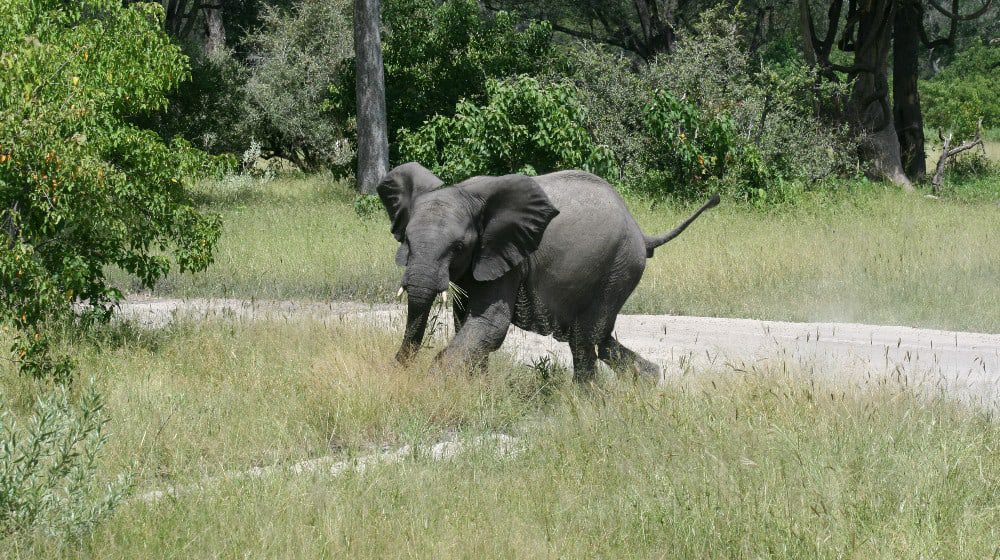Jan Lyons from Platinum Travel has lived the Africa dream. She had a romance inspired by Wilbur Smith, found her way into the travel industry and then has the chance to visit Southern Africa in 1999 and 2008.
Click here to read about that time she was parked right into the middle of a herd of elephants.
Referring back to Matt Leadham’s first manifesto of #traveltochangetheworld was this great line:
“… you’d have to be totally insane to see the product you actually sell slowly crumble in front of you as icons, wildlife, societies and destinations degenerate and ultimately disappear off the tourism trail thanks to the world’s biggest problem – ignorance.”
Africa has such a rich blend of wildlife which we are reminded on a daily basis, is rapidly fading. So much of what we see in travel is changed forever merely by the fact we go and look at it. Is Africa any different?

“The camps through Botswana are very ecologically minded and they’re very aware of their carbon footprint. There are a number of operators not impacting the environment and specifically, not impacting the wild animals. The camps are built in such a way that they can be dismantled and walked out and they would leave no trace.”
Wilderness Safaris is an excellent proponent of this and were experienced first hand by throughout the Okavango Delta. As a conservation organisation and a responsible ecotourism operator Wilderness Safaris believes fully in its vision of the 4Cs – Commerce, Conservation, Community and Culture; contributing meaningfully to the wildlife and the people of Africa.
Jan explains further:

“Society is more aware of its carbon footprint and many new housing developments are adopting change to make our homes and life more ecologically friendly, but realistically it comes down to each one of us individually to make that change. Visiting wilderness areas sometimes helps to bring this more into focus,” she said.
“When you go into the camps, you are welcomed on arrival and you sign your life away through liability forms. But no animals are going to come trying to claw into you tent.
“But you are in the bush, you might wake up and there might be elephants munching on the bush outside of your veranda, in which case you can blast your air horn and get someone’s attention to get out of your tent.”
Does the lack of infrastructure give you a more authentic experience?

“You are still under canvas but you are on a solid floor, have hot and cold running water, flushing toilets but you know you are in the African bush,” she said.
“I always felt safe and secure. You rely on what you are told by the Camp Manager. The next morning when you go for a coffee a tracker will go through the camp and identify the footprints of the animals that went through overnight.”
So how do you look at zoos today?

“I take a zoo for what it is. Zoos are progressing as time goes on, you look at Melbourne zoo now compared to what it was like 20 years ago and it’s totally different. Zoos are more sympathetic to the animals themselves, trying to replicate their natural environments more and more, rather than just having animals ‘in cages’.
“Zoos have a place, sometimes supporting research, breeding programs. Not everyone can get to Africa and to see these big animals so zoos given the place where they can go and appreciate them. Places like Werribee zoo are doing a pretty good job and my travels of allowed me to compartmentalise a difference between a zoo and the African bush.”


